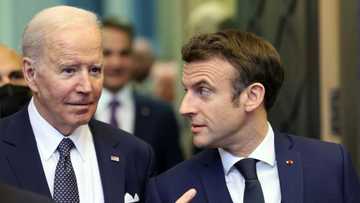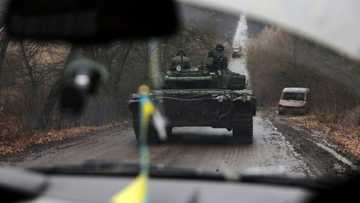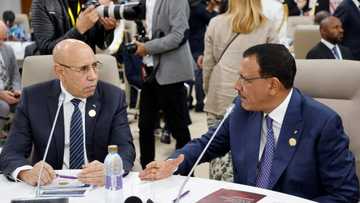Macron courts Central Asian strongmen in quest for influence
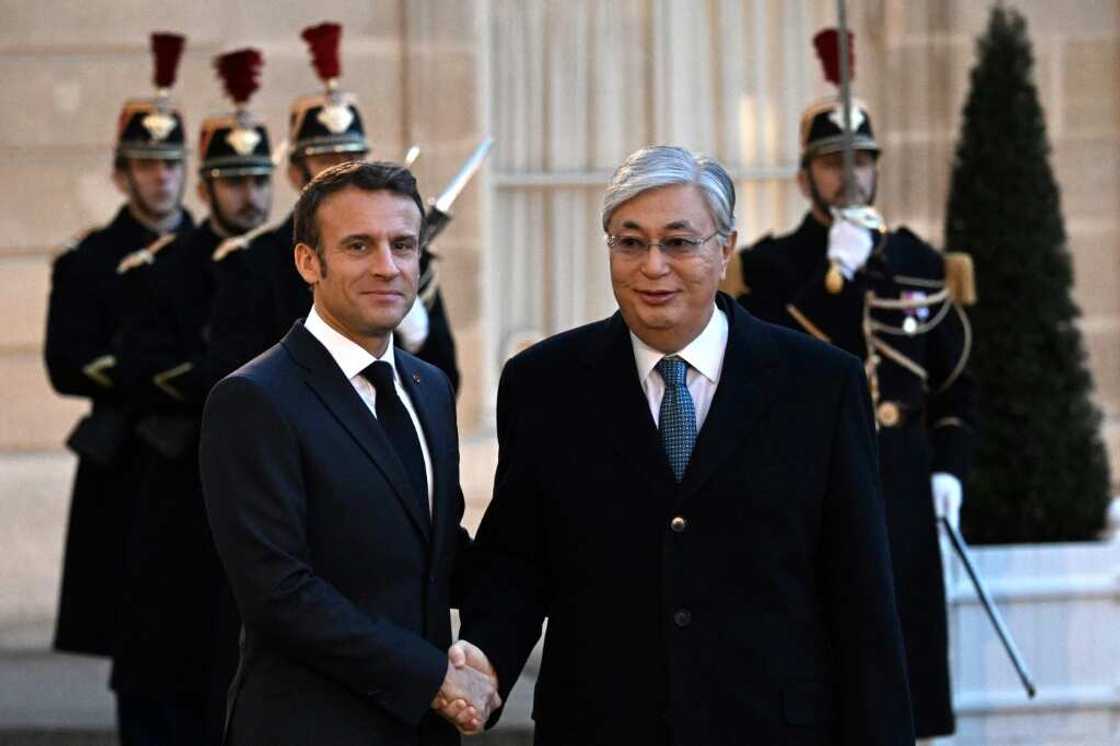
Source: AFP
PAY ATTENTION: How media literate are you? Click to take a quiz – bust fake news with Legit.ng!
French President Emmanuel Macron is making an eye-catching drive to strengthen partnerships with Central Asian states, seeking to boost Europe's influence in a strategic region where China, Russia, Turkey and the United States are already jostling for supremacy.
Macron held talks in Paris earlier this month with Uzbekistan President Shavkat Mirziyoyev, who was making a rare visit to a Western capital, and on Tuesday hosted Kazakh President Kassym-Jomart Tokayev at the Elysee Palace.
Last year, Macron hosted Tajik President Emomali Rahmon in Paris in an extremely unusual visit and also held telephone talks with the leader of Tajikistan on Saturday.
The flurry of diplomacy between Paris and the key Central Asian capitals come as France reassesses its ties with the former Soviet region in the wake of Russia's invasion of Ukraine.
Macron had previously sought to cultivate a viable relationship with Russian President Vladimir Putin.
Astana, Dushanbe and Tashkent have taken an at best ambivalent stance on the invasion. They have shown no enthusiasm but have stopped short of full-throated condemnation that would irritate their ex-Soviet masters in Moscow.
PAY ATTENTION: Join Legit.ng Telegram channel! Never miss important updates!
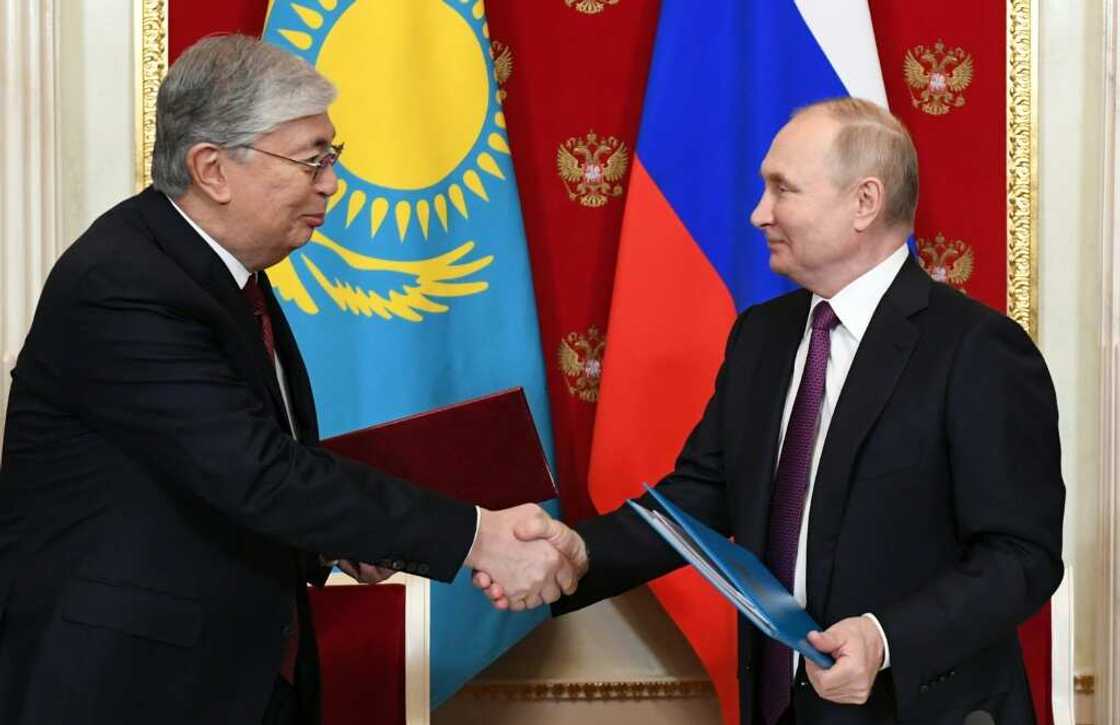
Source: AFP
Their ties with Russia are also of interest to Paris, which is keeping an eye on a possible negotiated solution to the invasion of Ukraine.
Tokayev held talks in Moscow with Putin the day before travelling to Paris.
Tokayev's visit aims to "consolidate our relationship and expand our dialogue in a context that is also difficult for the countries of Central Asia", said a French presidential official who asked not to be named.
"We continue to ... show our Central Asian partners the importance we attach to their region, wedged between China and Russia, and which needs to open up new horizons," added the official.
'Lacking competitiveness'
A Kazakh government source told AFP: "We firmly support the territorial integrity of Ukraine" in the face of the invasion.
"We don't support sanctions as a matter of principle. But we are not allowing our territories to be used for evading sanctions," the source added.
Meanwhile the Russian-led Collective Security Treaty Organisation (CSTO), a regional military alliance of which Kazakhstan is a member, is also in crisis.
A CSTO summit in Armenia earlier this month collapsed in near acrimony.
Cultivating such ties means Paris is also hosting leaders who are under fire for rights violations at home.
Tokayev comes to Paris fresh from an election in which he won a second term with a crushing 81.3 percent.
The Organisation for Security and Cooperation in Europe said the vote "took place in a political environment lacking competitiveness".
Around 230 people were killed when Tokayev violently suppressed protests in January over living costs.
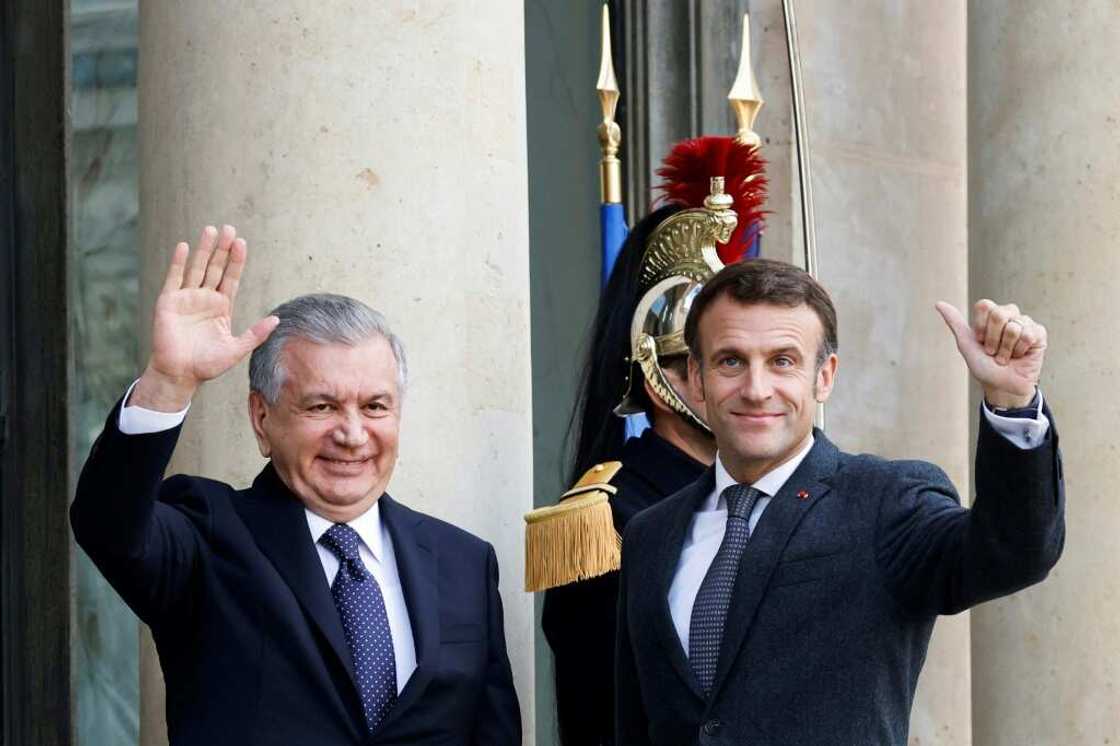
Source: AFP
Mirziyoyev is meanwhile credited with opening up Uzbekistan after the death of its post-Soviet leader Islam Karimov.
He has pushed through significant economic and social reforms but his regime is accused by aid organisations of trampling on people's basic rights.
Diversify partnerships
In a typical French touch, the visits by Rahmon and Mirziyoyev have both been accompanied by blockbuster exhibitions of cultural treasures rarely seen outside Tajikistan and Uzbekistan.
While China and the US have vied with Russia for influence in the region since the fall of the USSR, Turkey has in recent years shown an awakened interest in nations with which it shares close cultural and linguistic ties.
Ankara has revived a body known now as the Organisation of Turkic States and President Recep Tayyip Erdogan, with whom Macron has a tense relationship, has been a regular visitor to the region.
Analysts say that in the short term Europe is keen to promote energy ties with Central Asia, especially with hydrocarbon-rich Kazakhstan, as supplies from Russia dwindle. It also values the region's role as a key pipeline hub.
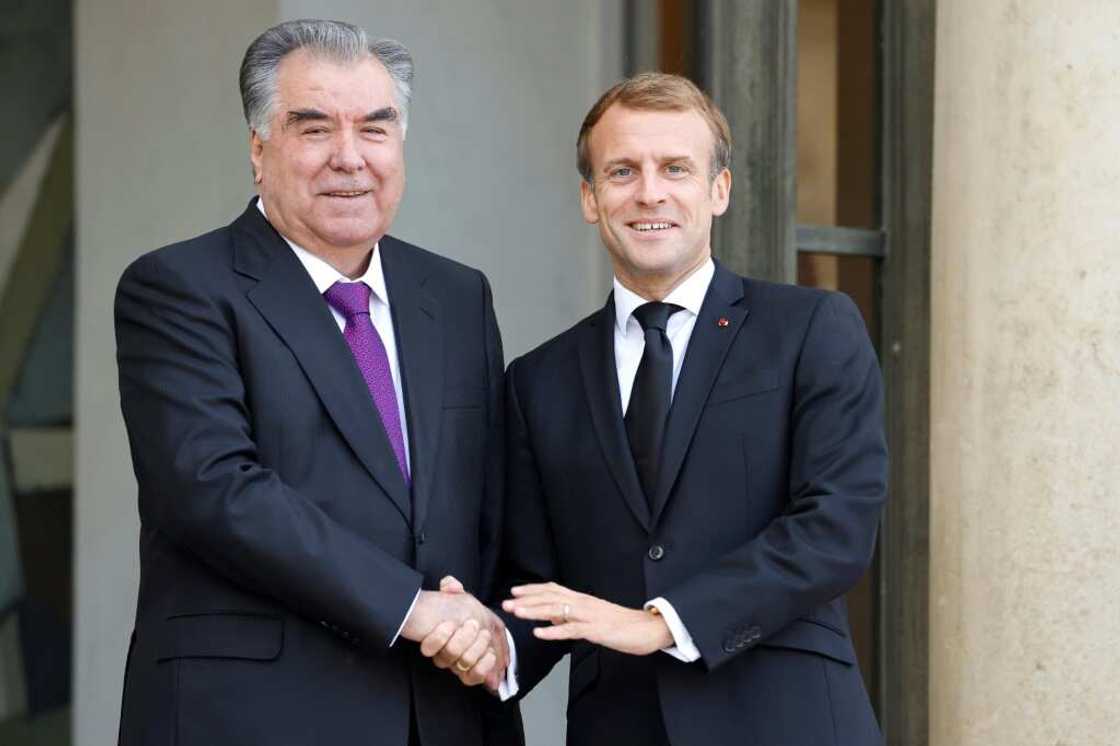
Source: AFP
"What interests the Europeans in Central Asia are energy resources while Russian hydrocarbons are under embargo ... and the transport corridors between China and the European Union," said Michael Levystone, associate researcher at the IFRI think tank.
"(Meanwhile) the sanctions against the Russian economy encourage the countries of Central Asia to diversify their partnerships on the international scene," added Levystone, whose Paris-based organisation specialised in Central Asia.
The Kazakh source said: "In light of the current uncertainties regarding energy security in Europe, Kazakhstan is determined to continue to play a role as a reliable and trustworthy energy partner."
Source: AFP



